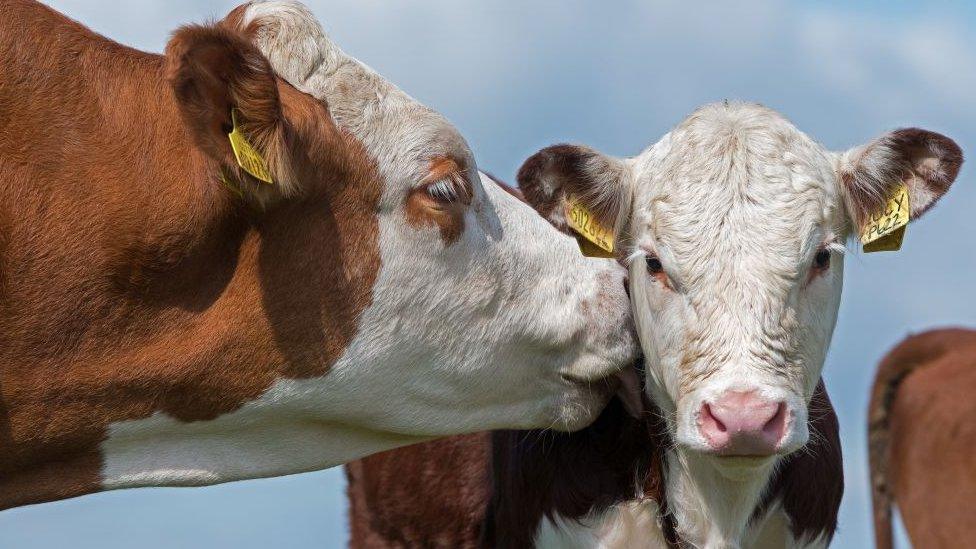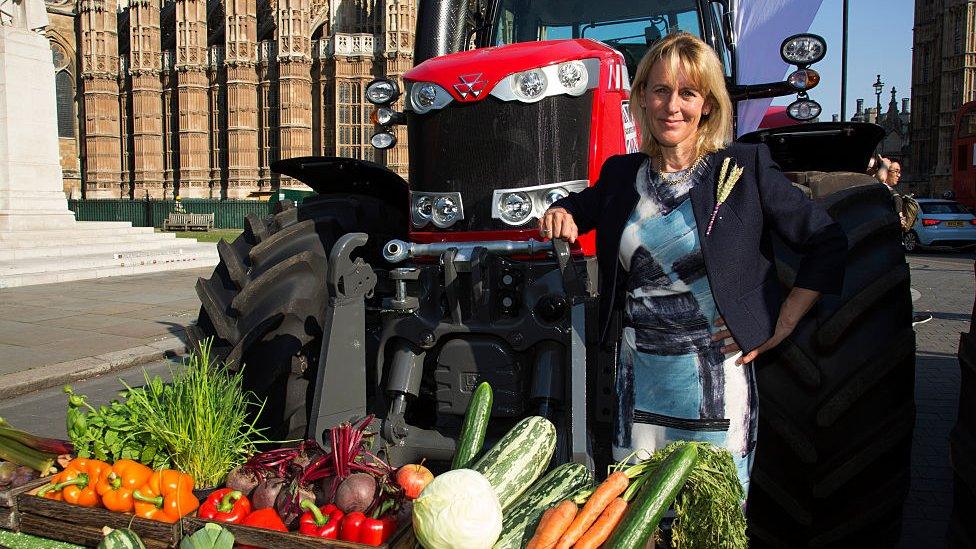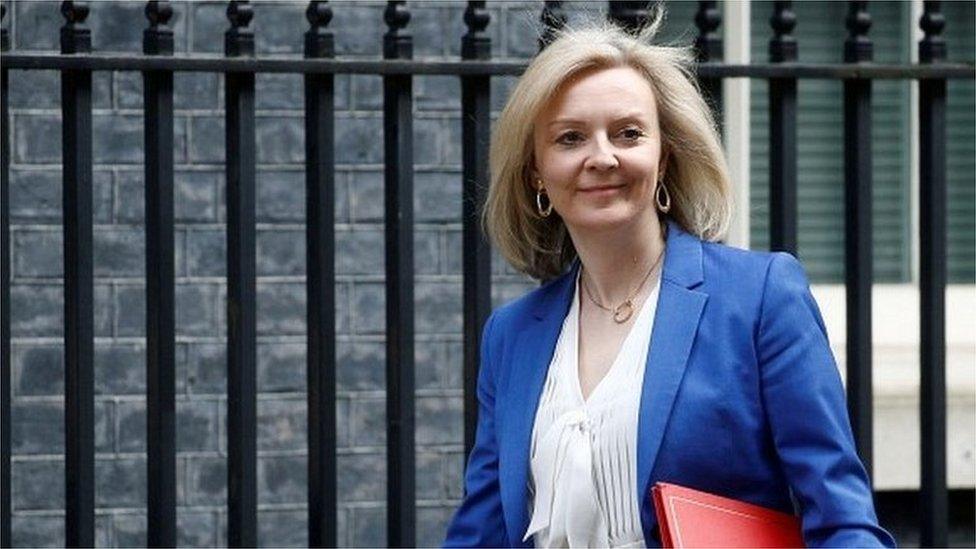UK-Australia trade deal: What are the arguments for and against?
- Published

British farmers are worried about competing with cheap foreign imports, such as beef
The UK and Australia have agreed the broad outlines of a free-trade agreement.
It is the UK's first post-Brexit trade agreement to be negotiated from scratch, and the government has long argued that the ability to strike its own deals around the world is one of the big benefits of leaving the EU.
But some British farmers fear a deal with Australia could threaten their livelihood.
How will the deal work?
The "agreement in principle, external" was published on 17 June, although a final signed agreement is still to be reached.
Under the deal, Australia will be able to send a certain amount of agricultural goods per year to the UK without any payment of tariffs (taxes on imports). Over time, these limits (or quotas) will increase.
And, after 15 years, there will be no quotas or tariffs on agricultural produce, apart from long-grain rice.
Let's take beef as an example. To start with, 35,000 tonnes will be allowed into the UK before tariffs kick in. But over the next 10 years this tariff-free limit will increase to 110,000 tonnes.
Tariff-free quotas on sugar and dairy will be eliminated sooner - eight years for sugar and five for dairy.
The UK government says the deal also means "iconic British products like cars, Scotch whisky, biscuits and ceramics will be cheaper to sell into Australia".
It also argues that a deal with Australia will be an important stepping-stone towards joining a wider Asia Pacific free-trade agreement - the Comprehensive and Progressive Agreement for Trans-Pacific Partnership (CPTPP) - which could provide British farmers and other businesses with huge opportunities.
Is it a good deal?
If you believe in free trade, then any deal making it easier to do business with other countries is a good one.
But context is important.
In 2019 (before Covid began to distort trade figures) the UK exported about £12bn of goods and services to Australia. That trade will get easier, and should expand.
But in the same year the UK exported about £294bn of goods and services to the EU. After Brexit, with the UK outside the EU single market, that trade is more difficult than it used to be.
What's the controversy over the Australia deal?
An ambitious deal with Australia could see some shop prices fall slightly, because food in the UK is often produced at higher standards and cost.
But the prospect of cheap foreign imports has led National Farmers Union president Minette Batters to warn of the "slow, withering death of family farms" in the UK, if the wrong deal is struck.

NFU president Minette Batters has warned farmers would struggle if the wrong deal is struck
Critics of the removal of tariffs and quotas also point out a deal with Australia would, according to the government's own estimate, increase the size of the British economy by only about 0.02%, over 15 years.
And if Australia is offered generous terms, they say, other bigger economies - such as the US and Brazil - will want at least as good a deal in the future. So, it could set an important precedent.
What does the government say about farmers?
The International Trade Secretary Liz Truss says British farmers will be protected because the point at which tariffs kick in will be raised gradually raised over 10 years. That means farmers won't have to compete with lots of Australian produce coming on to the UK market on day one.
Even after 10 years, the government says there will be safeguards. For example, if too much beef and lamb enters the UK a new tax called a "safeguard duty" can be applied for a further five years.
Work will now begin on a legal text which MPs will have a chance to scrutinise.
However, farmers remain concerned.

International Trade Secretary Liz Truss is responsible for the UK's post-Brexit trade deals
What about standards?
Food standards - such as hygiene and animal welfare rules - are an important issue in the UK.
And the World Wildlife Fund for Nature (WWF) notes the government has committed to making sure British farming improves its environmental impact.
"A rushed trade deal with Australia could drive a coach and horses through those efforts," WWF-UK chief executive Tanya Steele says, "and provide a gateway into the UK for foods produced in ways that harm the environment."
But the Department for International Trade has said any deal with Australia would "include protections for the agriculture industry" and not "compromise our high standards".
Why the rush?
The government has signed a long list of trade deals over the past year or so but they have been rollovers of those the UK already had as part of the EU.
There is also the new free trade deal with the EU itself, which provides less open market access than EU membership did, as many farmers and fishing communities have already discovered.
A free-trade deal with Australia will be the first big deal that really expands markets.
This makes it politically and symbolically important.


